Roses are beloved for their fragrance, elegance, and vibrant blooms, but they are not without challenges. One of the most common pests affecting roses is the aphid, a tiny, sap-sucking insect that can weaken plants, distort leaves, and reduce flower quality. While chemical insecticides are often used to combat aphids, natural and plant-based solutions offer a safer, eco-friendly alternative.
One of the most effective methods is companion planting—growing certain plants near roses to repel aphids naturally. This not only protects your roses but also supports beneficial insects, pollinators, and overall garden health.
In this article, we’ll explore eight plants that keep aphids away from your roses, explain why they work, and provide tips for planting them effectively.
Why Aphids Are a Threat to Roses
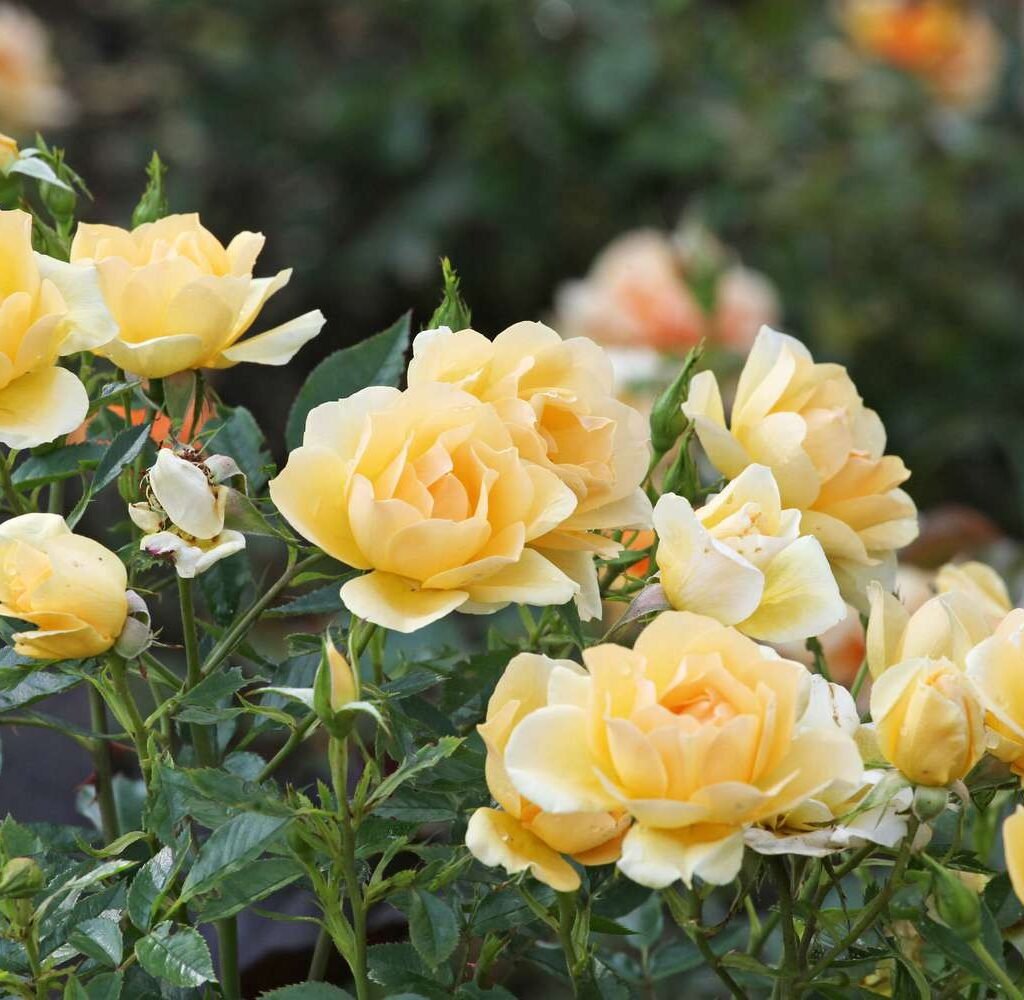
Aphids feed on plant sap using piercing mouthparts, which:
- Cause curling, yellowing, or distorted leaves.
- Weaken stems and reduce overall plant vigor.
- Produce honeydew, a sticky substance that encourages sooty mold.
- Attract ants, which protect aphids from natural predators.
By planting aphid-repelling companions, gardeners can create a barrier of natural deterrents and encourage predators like ladybugs and lacewings to thrive.
1. Garlic (Allium sativum)
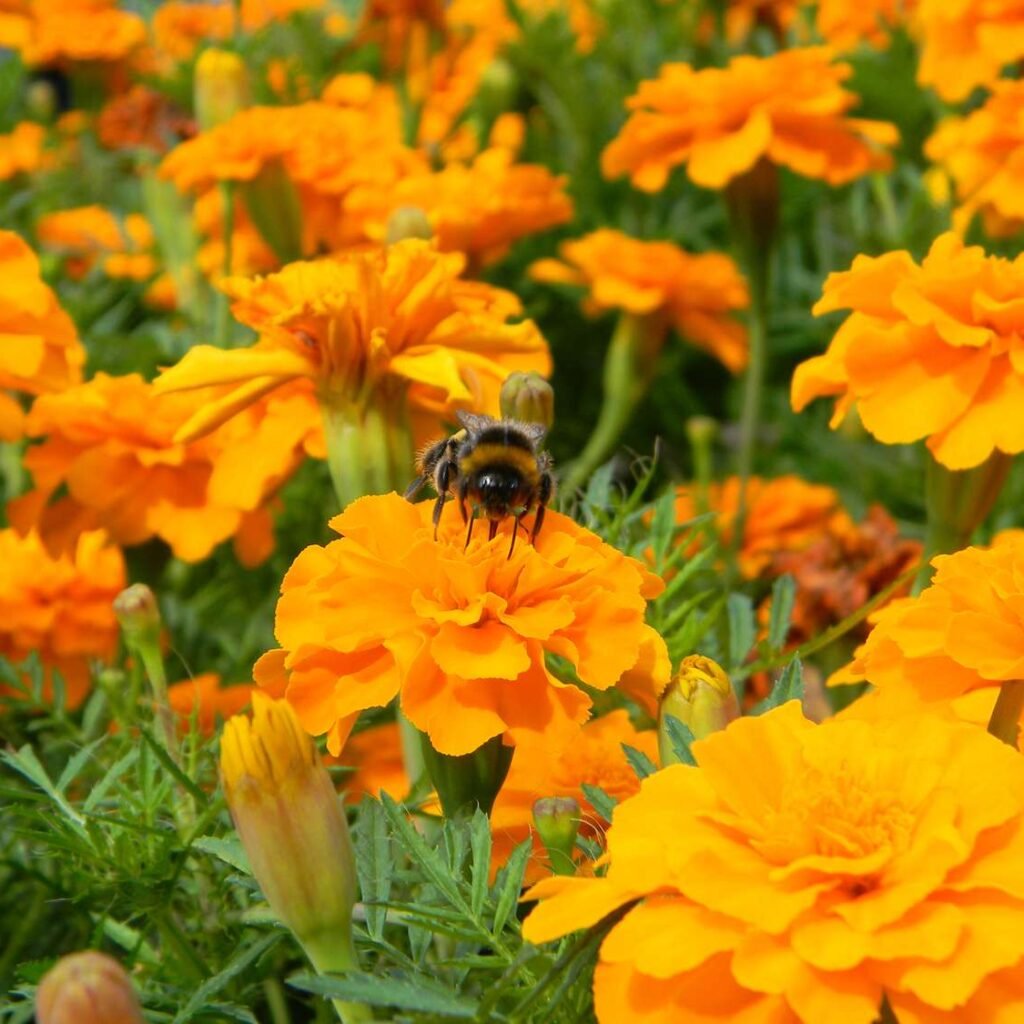
Garlic is a powerful natural aphid repellent due to its strong aroma.
Why It Works:
- The pungent smell masks the scent of roses, confusing and deterring aphids.
- Encourages beneficial insects, such as ladybugs and hoverflies, which feed on aphids.
- Easy to grow and requires minimal care.
Planting Tips:
- Plant garlic bulbs around the base of rose bushes.
- Intercrop with other companions to enhance pest protection.
- Harvest bulbs in late summer while keeping foliage intact until then.
Expert Insight: Garlic’s natural compounds act as a dual-purpose solution—repelling pests while supporting beneficial insects.
2. Chives (Allium schoenoprasum)
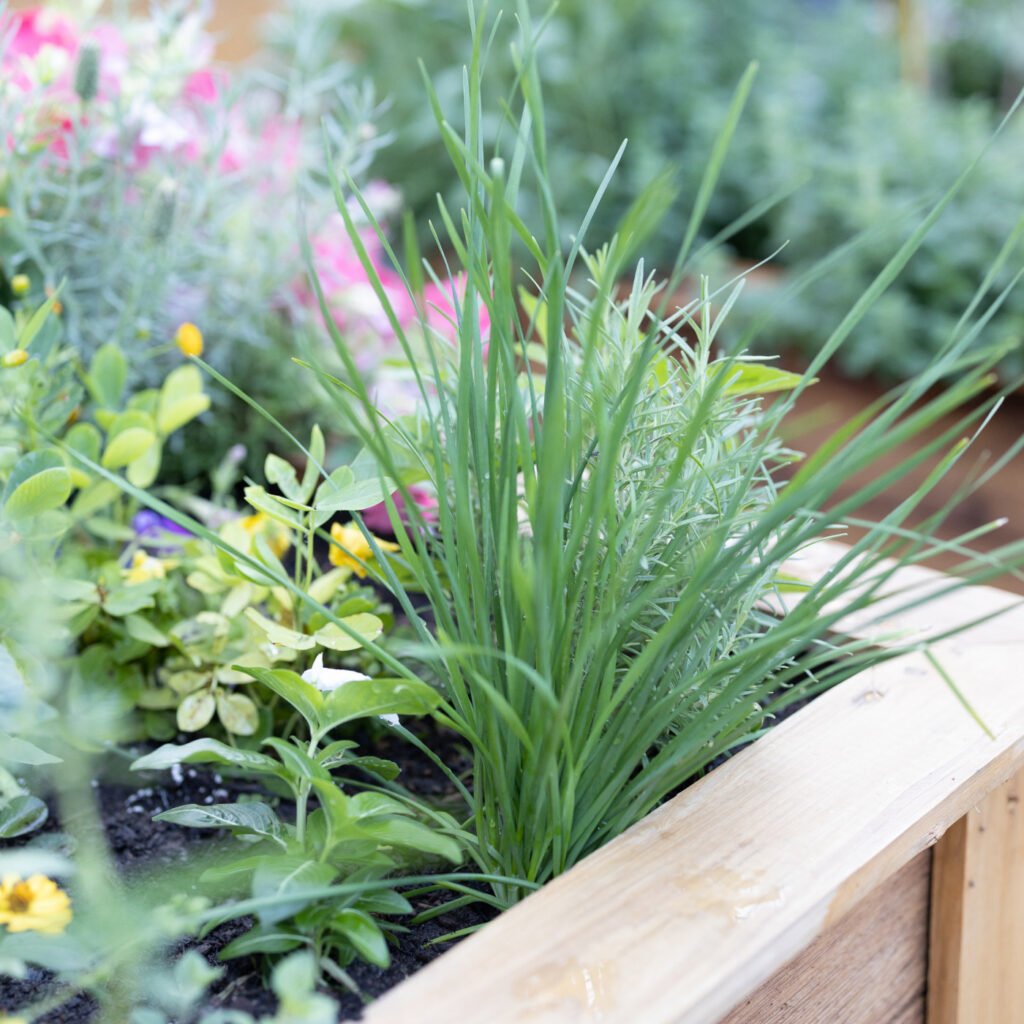
Chives, a milder cousin of garlic, are also effective in deterring aphids naturally.
Why It Works:
- Strong scent repels aphids and other soft-bodied insects.
- Attracts pollinators like bees, which help maintain overall garden health.
- Adds edible value to your garden with fresh, flavorful leaves.
Planting Tips:
- Plant in clusters around rose beds or in nearby containers.
- Trim regularly to encourage fresh growth.
- Combine with other allium family members for maximum aphid deterrence.
Expert Insight: Chives are particularly effective when planted as a dense border around roses, forming a natural aromatic barrier.
3. Marigolds (Tagetes spp.)
Marigolds are well-known in companion planting for their pest-repelling properties.
Why It Works:
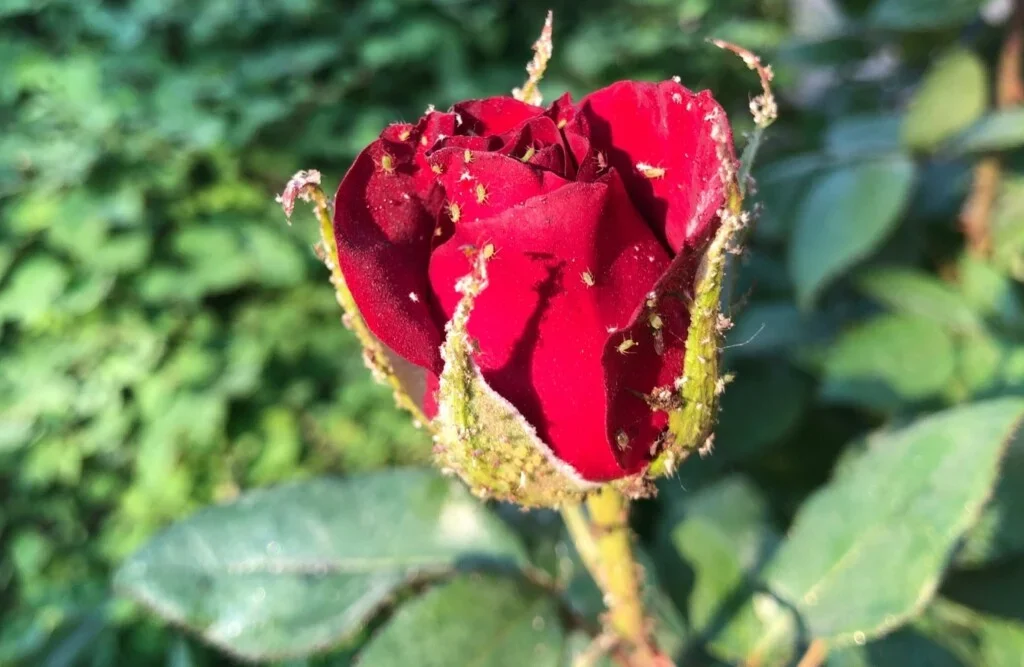
- Produce strong scent compounds that aphids dislike.
- Attract beneficial predators like ladybugs, lacewings, and parasitic wasps.
- Bright blooms enhance the visual appeal of rose gardens.
Planting Tips:
- Plant marigolds around rose beds or interspersed among roses.
- Deadhead regularly to encourage continuous blooming.
- Use a mix of tall and dwarf varieties for layered visual and ecological benefits.
Expert Insight: Marigolds not only deter aphids but also attract pollinators, improving rose productivity.
4. Nasturtiums (Tropaeolum majus)
Nasturtiums are trailing annuals that act as a “trap crop” for aphids.
Why It Works:
- Aphids prefer feeding on nasturtiums instead of roses, sparing the main plants.
- Attract beneficial insects such as hoverflies and ladybugs.
- Easy to grow, colorful, and edible.
Planting Tips:
- Plant at the base of roses or along the edges of garden beds.
- Allow trailing varieties to cascade naturally, creating a protective buffer.
- Remove heavily infested leaves to prevent aphid population buildup.
Expert Insight: Nasturtiums are a strategic companion plant, diverting aphids while enriching your garden with color.
5. Catmint (Nepeta spp.)
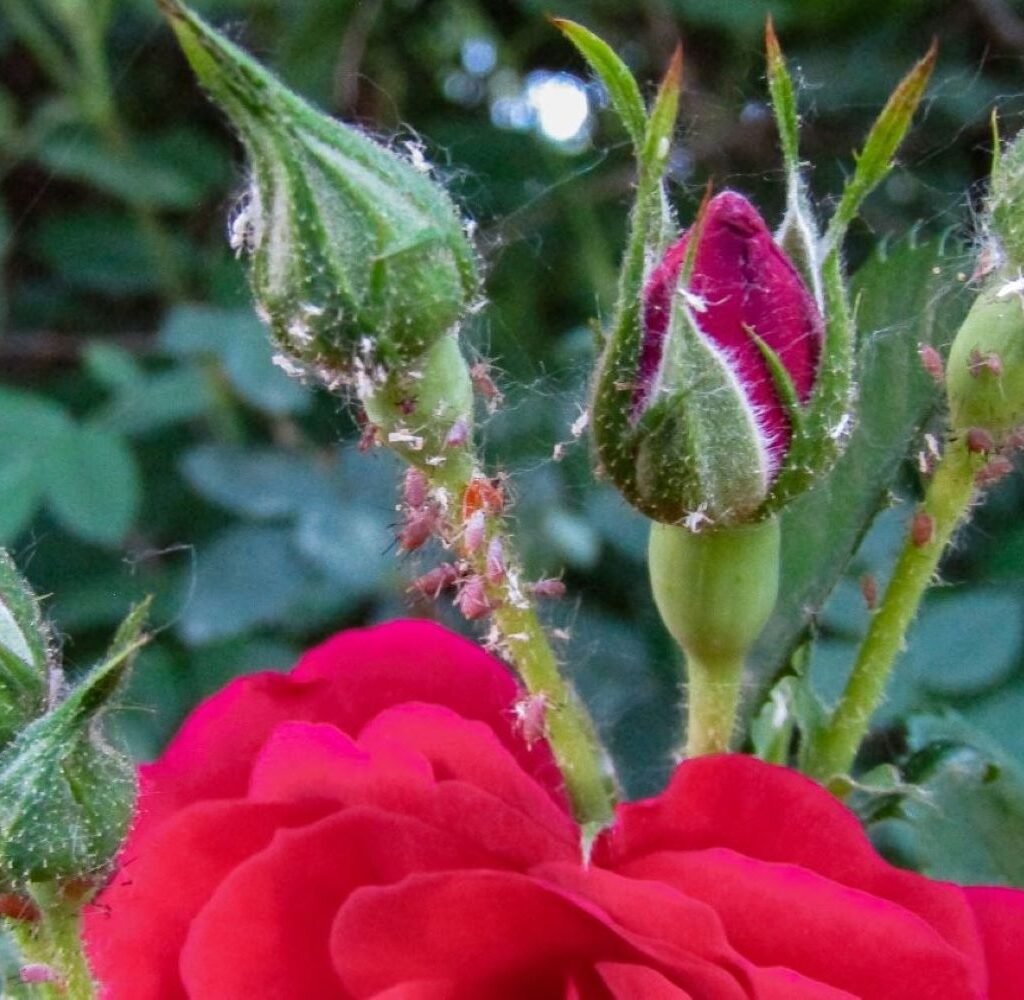
Catmint is a hardy perennial with strong aromatic foliage that repels aphids.
Why It Works:
- Aromatic oils confuse and deter aphids from feeding on nearby roses.
- Attracts pollinators and beneficial insects, such as predatory wasps.
- Low-maintenance and long-blooming, adding seasonal interest to the garden.
Planting Tips:
- Plant catmint in clumps around roses, leaving enough space for airflow.
- Prune after flowering to maintain compact growth.
- Combine with other aromatic herbs for enhanced pest resistance.
Expert Insight: Catmint’s scent is pleasant to humans but repellent to aphids, making it a perfect companion for roses.
6. Fennel (Foeniculum vulgare)
Fennel attracts beneficial insects while repelling aphids indirectly.
Why It Works:
- Releases volatile compounds that confuse aphids.
- Attracts ladybugs, lacewings, and parasitic wasps, natural predators of aphids.
- Adds culinary and ornamental value with feathery foliage and yellow blooms.
Planting Tips:
- Plant fennel at the back of rose beds due to its height.
- Avoid overcrowding, as fennel can become invasive.
- Trim spent flowers to encourage continuous beneficial insect activity.
Expert Insight: Fennel acts as a magnet for predatory insects, enhancing natural aphid control.
7. Rosemary (Rosmarinus officinalis)
Rosemary is a fragrant, drought-tolerant herb that repels a range of pests.
Why It Works:
- Its strong scent deters aphids from settling on roses.
- Attracts beneficial insects like hoverflies and predatory wasps.
- Adds evergreen structure and aromatic foliage to rose gardens.
Planting Tips:
- Plant rosemary near rose borders or in containers close to the roses.
- Prune regularly to maintain shape and encourage airflow.
- Pair with other herbs like thyme or sage for enhanced pest control.
Expert Insight: Rosemary provides year-round protection and structure, complementing roses aesthetically and ecologically.
8. Tansy (Tanacetum vulgare)
Tansy is a perennial herb known for its strong scent and medicinal properties.
Why It Works:
- Aromatic foliage repels aphids, ants, and other pests.
- Yellow, button-like blooms attract beneficial insects.
- Easy to grow and low-maintenance, thriving in sunny gardens.
Planting Tips:
- Plant tansy at a distance to avoid overwhelming roses with its vigorous growth.
- Deadhead to encourage continued bloom.
- Use in combination with other aromatic herbs for maximum pest deterrence.
Expert Insight: Tansy acts as a strategic aromatic barrier, discouraging aphids while attracting helpful predators.
Tips for Effective Aphid Control With Companion Plants
- Mix Aromatic Herbs and Flowers: Combining garlic, chives, rosemary, and catmint increases aphid deterrence.
- Plant in Clusters: Dense groupings of deterrent plants create effective barriers.
- Encourage Beneficial Insects: Avoid pesticides that harm ladybugs, lacewings, and parasitic wasps.
- Monitor Regularly: Companion plants reduce aphid pressure but do not eliminate infestations completely. Inspect rose leaves frequently.
- Provide Water and Mulch: Healthy roses are less susceptible to pest damage. Maintain moisture and soil health.
Benefits of Using Companion Plants for Roses
- Natural Aphid Control: Reduces reliance on chemical pesticides.
- Pollinator Support: Attracts bees and other pollinators for healthier blooms.
- Aesthetic Enhancement: Creates a vibrant, multi-layered garden design.
- Soil and Microbe Health: Some companion plants improve soil fertility and structure.
- Biodiversity: Supports beneficial insects and wildlife, maintaining a balanced ecosystem.
Conclusion
Aphids can be a persistent problem for roses, but companion planting offers an elegant and natural solution. Garlic, chives, marigolds, nasturtiums, catmint, fennel, rosemary, and tansy provide pest-repelling scents, attract beneficial insects, and enhance garden aesthetics.
By thoughtfully planting these companions, gardeners can enjoy healthier roses, reduced pest pressure, and a thriving pollinator-friendly garden. Integrating natural deterrents into your rose beds not only protects your blooms but also promotes ecological balance, beauty, and sustainable gardening practices.
With the right companion plants, your roses can flourish with vigor, free from aphid damage, and your garden can become a vibrant haven for pollinators and beneficial insects alike.
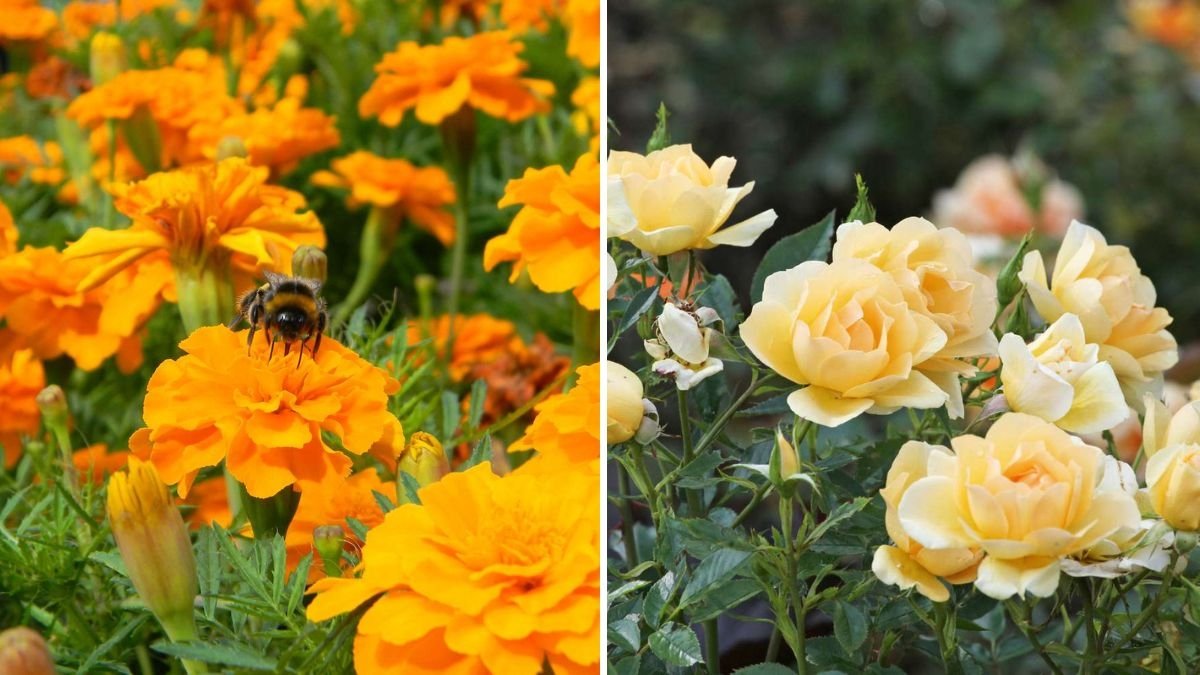
Leave A Comment